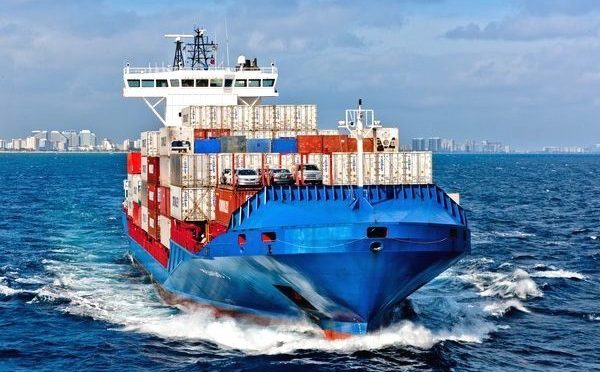Is global shipping threatened by protectionism?

While protectionism in trade may bode well for trade itself, does this protectionism affect or threaten global shipping? Freight rate portal Xeneta explores the issue.
We asked our social media community “Do you believe global shipping is threatened by the rising protectionist sentiment?” Here are the results and analysis of protectionism.
No 40%
Too early to say 30%
Yes 25%
I don’t know 5%
A large chunk of respondents answered that they do not believe protectionism will affect global shipping.
Taking part in the survey, Virgill Ratliff of Excelsior Worldwide Freight Logistics and Hariesh Manaadiar of Shipping and Freight Resource do not believe that protectionism will be a threat to the global shipping industry while Mark Montague from DAT Solutions commented via Twitter: “Industrial activity climbing in the US with heavy emphasis on exports. US business community will temper President Trump’s call for import restrictions.”
How does protectionism work?
Protectionism works in a few different ways such as:
- Increasing import tariffs so the imported goods will naturally be priced higher than local goods
- Subsidising local goods/services so the prices will be cheaper than imported goods or the government entities that receive these subsidies will stay in business
- Setting quotas for imports so that only a certain quantity can be imported
- Lowering currency value so that it makes a rate of exchange favourable for exporters but unfavourable for importers.
Protectionism and global shipping correlation
If one analyses the correlation between protectionism and global shipping, one can see the reason why the majority voted to say that protectionism won’t affect global shipping.
A classic example is the Merchant Marine Act of 1920 of USA commonly known as the Jones Act, a federal legislation, imposes four primary requirements on vessels carrying goods between US ports. The vessels must be: owned by US companies that are controlled by US citizens with at least 75% US% ownership; at least 75% crewed by US citizens; built (or rebuilt) in the United States; and registered in the United States.
This is protectionism at its best and directly relates to the topic under discussion.
Acts of protectionism such as the Jones Act are not unique in the world. There are 47 nations that have cabotage laws restricting foreign access to domestic trade similar to Jones Act in order to reserve a country’s domestic maritime transportation for its own citizens.
Effects of protectionism
Global trade fluctuates due to a variety of reasons such as overcapacity, inconsistent freight rates and oil prices. There is no official evidence which suggests that the countries with the protectionist policies have lost their share of global shipping.
Nor has any shipping line in the world stopped calling US ports in opposition to the Jones Act.
On the contrary, it has been reported that a study by the United States Maritime Administration found that more than 107,000 workers are employed in the nation’s private shipyards, and the industry supports more than 400,000 jobs across the county – in all 50 states – and generates $23.9bn in income and $36bn worth of goods and services every year.
Discussions surrounding the advantages or disadvantages of having protectionist policies rage on especially in the US.
A report released by the Alliance for Innovation and Infrastructure titled “The Jones Act: Protectionism v Global Trade,” argues that due to the Jones Act, the daily cost of a US ship’s crew is at least six times than that of a foreign crew due to inflated wages..
As per this report, these costs are ultimately incorporated somewhere into the cost of the goods being shipped which could end up harming smaller economies.
Those in favour, of course, suggest the Jones Act has guaranteed US shipowners a monopoly in the trade space, thereby helping the domestic companies have little to no competition.
There are other forms of protectionist policies such as subsidising of state owned shipping enterprises such as China helping their two main shipping lines Cosco and China Shipping for the past several years, Taiwan bailing out its shipping industry, South Korea subsiding their shipbuilding industry (although they let Hanjin face bankruptcy).
There are several examples of such protectionism which, while providing some temporary relief to the recipients, will eventually result in allowing the overcapacity of tonnage to continue which may keep rates from rising further and this is something that will not end well for everyone concerned.
As long as there is no tangible evidence that protectionist policies threaten global shipping, it is assumed that it will be business as usual for global shipping, because in the end, in the words of Bill Clinton, “it’s the economy, stupid” and global shipping is what keeps the economy and the world going.

I find this article quite extraordinary.
It misses the whole point!
It isn’t the ships – it’s the cargo!
The Jones Act does not cover cargo moving to and from US ports to international destinations, so of course it has had no effect on US trade by sea.. Of course there is no reason why any shipowner should stop calling at US ports, “in opposition to the Jones Act!”
It would be more pertinent to look at the impact of protectionism on cargo volumes in the 1930’s.
From the passing of the Smoot-Hawley Tariff in 1930 and June 1933 the value of world trade – almost all of it by sea – fell from US$ 5.3 Bn to US$ 1.8 Bn. Shipping inevitably entered the deepest recession it has known.
If you don’t have any cargo to carry, your ship is not going to carry any cargo.
This isn’t rocket science…